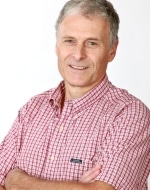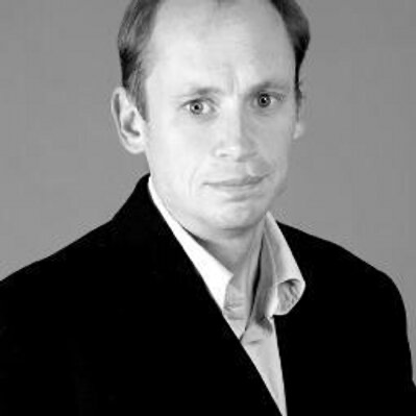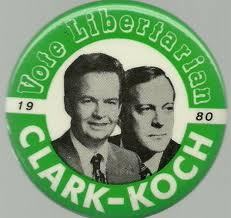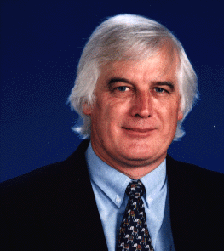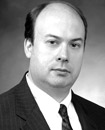Ian Clark
Credentials
According to the NRSP, Clark completed his graduate studies at the University of Waterloo and at the Université de Paris Sud (Orsay) in isotope hydrogeology and paleoclimatology.1“NRSP People: Dr. Ian Clark,” The Natural Resources Stewardship Project. Archived January 20, 2009.
Background
Ian D. Clark is emeritus professor in the Department of Earth and Environmental Sciences at the University of Ottawa.2“Ian D. Clark,” uOttawa. Archived February 23, 2024. Archive URL: https://archive.ph/EL1n8
He was a science advisor to the Natural Resources Stewardship Project (NRSP),3“NRSP People,” Natural Resources Stewardship Project. Archived February 6, 2007. Archive URL: https://archive.ph/4DxlK and was once listed as an “Arctic specialist” by the Competitive Enterprise Institute (CEI).4“Are Global Warming Disasters Really on the Way?” Competitive Enterprise Institute, May 12, 2004. Archived February 23, 2024. Archive URL: https://archive.ph/64muu
Stance on Climate Change
November 6, 2023
“We find no evidence in the geological record and in the historical record that changes in CO2 concentrations are affecting temperature or climate,” Clark claimed in a short video for Friends of Science titled “Why do we need a reality check on climate change?“5“Why do we need a reality check on climate change?” YouTube video uploaded by user “Friends of Science,” November 6, 2023. Archived .mp4 on file at DeSmog.
He went on: “Depends on the time scale. We find very strong correlations between CO2 and warming. The interesting point though is that the warming starts first. So warming drives CO2.”
Skeptical Science delves deeper into this commonly used climate myth here.
October 17, 2023
“We have no evidence that CO2 drives climate. It follows climate. It reacts to different processes, but it doesn’t drive climate,” Clark said during his presentation, “A Reality Check on Climate and Net Zero,” at the Friends of Science‘s 20th Annual “climate science” event in Calgary, Alberta. 6“Dr. Ian Clark: A Reality Check on Climate and Net Zero,” YouTube video uploaded by user “Friends of Science,” October 25, 2023. Archived .mp4 on file at DeSmog. This argument is among Skeptical Science’s most used climate change myths.
March 22, 2004
Clark wrote the following in a letter to the editor at The Hill Times. It was republished by the Natural Resources Stewardship Project (NRSP):
“I am compelled to disagree that there is a consensus of scientists who agree that this [climate change] is the consequence of human activities. While the melting of permafrost, retreat of glaciers and waning of the permanent ice pack may be alarming, it is only alarming to those unfamiliar with past changes in climate in the North. Paleoclimatologists recognize such events as part of natural changes wholly unrelated to CO2 concentrations in the atmosphere. In fact, the waxing and waning of ice shelves, along with glaciers, ice caps and pack ice are largely related to changes in solar inputs.”7“Letter to the editor of The Hill Times,” The Natural Resources Stewardship Project, March 22, 2004. Archived February 10, 2009.
Key Quotes
October 17, 2023
“Everybody overlooks the fact that CO2 really is the essence of life,” Clark said during a presentation at the Friends of Science‘s 20th Annual “climate science” event. He added, “it bears repeating that we’re talking about something which is not a pollutant. It’s not a contaminant, although the EPA has declared it such. It’s good for us. It’s essential.”8“Dr. Ian Clark: A Reality Check on Climate and Net Zero,” YouTube video uploaded by user “Friends of Science,” October 25, 2023. Archived .mp4 on file at DeSmog.
March 2007
“Solar activity of the last hundred years, over the last several hundred years correlates very nicely on a decadal basis, with sea ice and Arctic temperatures,” Clark said during his appearance in The Great Global Warming Swindle.9Martin Durkin (director). The Great Global Warming Swindle (Documentary). WAGtv Ltd. for Channel 4 (March 8, 2007). 00:35:38-00:35:47.
Key Deeds
October 17, 2023
Clark spoke at the Friends of Science‘s 20th. Annual Climate Science Event. The event’s theme was “Break Free from Climate Tyranny: Evidence over Ideology” and featured a talk from economist Robert Lyman.10“Friends of Science Twentieth Annual Event, With Dr. Ian Clark and Robert Lyman,” Friends of Science. Archived March 1, 2024. Archive URL: https://archive.ph/1Cwy1
Clark’s talk was titled “A Reality Check on Climate and Net Zero.”11“Dr. Ian Clark: A Reality Check on Climate and Net Zero,” YouTube video uploaded by user “Friends of Science,” October 25, 2023. Archived .mp4 on file at DeSmog.
“Everybody overlooks the fact that CO2 really is the essence of life,” Clark said during his presentation. He added, “it bears repeating that we’re talking about something which is not a pollutant. It’s not a contaminant, although the EPA has declared it such. It’s good for us. It’s essential.”12“Dr. Ian Clark: A Reality Check on Climate and Net Zero,” YouTube video uploaded by user “Friends of Science,” October 25, 2023. Archived .mp4 on file at DeSmog.
According to his slide deck, there is “No evidence from the past that CO2 is a driver” of global warming.13“A Reality Check on Climate and Net-Zero” (PDF), October 19, 2023. Retrieved from friendsofscience.org.
Event sponsors included Shane Gomes, Ken Gregory, the Modern Miracle Network, Marian Heinze Consulting, the Coalition of Concerned Manufacturers and Businesses of Canada, And W. Brett Wilson.14“Friends of Science Twentieth Annual Event, With Dr. Ian Clark and Robert Lyman,” Friends of Science. Archived February 23, 2024. Archive URL: https://archive.ph/1Cwy1
February 4, 2018
In January 2018, more than 200 scientists endorsed an open letter calling on the American Museum of Natural History (AMNH) to remove climate change denier Rebekah Mercer from its board and to “end ties to anti-science propagandists and funders of climate science misinformation.” The New York Times reported that those among the AMNH letter calling for Mercer to step down were Michael E. Mann, director of the Earth System Science Center at Pennsylvania State University, and Katharine Hayhoe, director of the Climate Science Center at Texas Tech University.15Robin Pogrebin and Somini Sengupta. “A Science Denier at the Natural History Museum? Scientists Rebel,” The New York Times, January 25, 2018. Archived February 13, 2018. Archive.is URL: https://archive.is/tAIv4
Clark was among a group of climate change deniers who responded with their own open letter, calling for the AMNH “not to cave in to this pressure.” The letter was signed by numerous individuals with ties to groups funded by the Mercer Family Foundation such as Will Happer of the CO2 CoalitionRichard Lindzen, a fellow at the Cato InstituteCraig Idso, the chairman of the Center for the Study of Carbon Dioxide and Global Change. There are a number of signatories affiliated with the Heartland Institute, which has received over $5.78 million from the Mercer Family Foundation since 2008.16Graham Readfearn. “Climate Science Deniers Defend New York’s American Museum of Natural History From Calls to Drop Trustee Rebekah Mercer,” DeSmog, February 6, 2018.
The letter reads:17mnh18-feb4-petitionletter (PDF – Untitled). Retrieved from Watts Up With That.
“The Earth has supported abundant life many times in the geological past when there were much higher levels of carbon dioxide in the atmosphere. It is quite likely that future generations will benefit from the enrichment of Earth’s atmosphere with more carbon dioxide.
“Make no mistake, the agitators are not defending science from quackery — quite the contrary!”
February 9, 2012
In an interview for Canada’s Financial Post, Clark defended the extraction of tar sands oil:
“The pollution and emissions from the oil sands have been greatly exaggerated. Killing the oil sands would be to the great detriment of all Canadians, from aboriginal groups to engineers and other workers alike. It is greener energy than many other sources.”18Yadullah Hussain. “‘The environmental movement has lost its way’,” Financial Post, February 9, 2012. Archived February 1, 2019. Archive.is URL: http://archive.is/bnLer
He further suggested that the consumption of tar sands oil is not a significant contributor to climate change and minimized the effect of CO2:
“The oil sands contribute very, very little to global CO2. If one believes in global warming, then one must accept that the oil sands contribute very, very little to warming. Shutting down those operations would do nothing to reducing CO2 emissions. … CO2, however, has had no apparent impact on the warming periods.”19Yadullah Hussain. “‘The environmental movement has lost its way’,” Financial Post, February 9, 2012. Archived February 1, 2019. Archive.is URL: http://archive.is/bnLer
December 15, 2011
Clark testified before the Canadian Senate’s Standing Committee on Energy, the Environment, and Natural Resources to challenge the IPCC’s findings of CO2 as a driver of anthropogenic climate change.20“Professor Ian Clark testifies at the Canadian Senate Hearing – December 15, 2011,” YouTube video uploaded by user “Tom Harris,” December 29, 2011. Accessed June 5, 2019. Archived .mp4 on file at DeSmog.
He referred to 20th century warming as “nothing unusual” and claimed that CO2 “cannot give us the warming that has been projected.”21“Professor Ian Clark testifies at the Canadian Senate Hearing – December 15, 2011,” YouTube video uploaded by user “Tom Harris,” December 29, 2011. Accessed June 5, 2019. Archived .mp4 on file at DeSmog.
Clark further proposed that modern warming is driven primarily by solar activity:
“What is driving global warming? Well, we have to look at the sun. […] We have a reason that our climate is warming. It’s not CO2.”22“Professor Ian Clark testifies at the Canadian Senate Hearing – December 15, 2011,” YouTube video uploaded by user “Tom Harris,” December 29, 2011. Accessed June 5, 2019. Archived .mp4 on file at DeSmog.
In his summary, Clark stated the following:
“There is no geological evidence that CO2 has behaved in the past as a significant forcing mechanism for climate. […]
CO2 is more than a benign gas. It is an essential nutrient for plants, and within reasonable limits has only beneficial effects for life.
Our effort to limit the use of fossil carbon-based energy has solved no environmental problems, yet has created many more […]”23“Professor Ian Clark testifies at the Canadian Senate Hearing – December 15, 2011,” YouTube video uploaded by user “Tom Harris,” December 29, 2011. Accessed June 5, 2019. Archived .mp4 on file at DeSmog.
March 8, 2007
Clark appeared in The Great Global Warming Swindle as an “expert in palaeoclimatology,” and claimed that the climate started warming “800 years before rises in carbon dioxide levels.”24“Greenhouse effect is a myth, say scientists,” Daily Mail Online, March 5, 2007.
The Great Global Warming Swindle also starred the infamous climate change denier Tim Ball and other notable skeptics including Roy Spencer, Fred Singer, Pat Michaels and numerous others.
February 2007
Clark was on the “writing team” for the Fraser Institute’s 2007 independent summary for policymakers (ISPM).
The ISPM’s conclusion is that “there will remain an unavoidable element of uncertainty as to the extent that humans are contributing to future climate change, and indeed whether or not such change is a good or bad thing.”25“Independent Summary for Policymakers: IPCC Fourth Assessment Report” (PDF), The Fraser Institute, March 2, 2007.
Other authors included well known global warming skeptics such as Joseph D’aleo, Madhav Khandekar, William Kininmonth, Christopher Essex, Wibjorn Karlen, and Tad Murty.
December 12th, 2007
Clark signed an open letter to the Secretary-General of the United Nations alleging that that the “UN climate conference taking the World in entirely the wrong direction.”26“Open Letter to the Secretary-General of the United Nations,” Science and Public Policy Institute, December 13, 2007.
Affiliations
- Natural Resources Stewardship Project (NRSP) — Past Scientific Advisory Board member. The NRSP is now defunct.27“NRSP People,” Natural Resources Stewardship Project. Archived February 6, 2007. Archive URL: https://archive.ph/4DxlK
- The Fraser Institute — Co-author of the Fraser Institute’s 2007 Independent Summary for Policymakers (ISPM).28“Independent Summary for Policymakers
IPCC Fourth Assessment Report” (PDF), The Fraser Institute, March 2, 2007. - Competetive Enterprise Institute (CEI) — Clark is listed by the Competitive Enterprise Institute (CEI) as an “Arctic specialist” and media contact.29“Are Global Warming Disasters Really on the Way?” Competitive Enterprise Institute, May 12, 2004. Archived February 23, 2024. Archive URL: https://archive.ph/64muu
- The Heartland Institute — “Expert.”30“Heartland Experts: Mr. Ian Clark,” The Heartland Institute. Accessed March 1, 2012. Page no longer exists and is not saved in the Internet Archive. “Ian Clark,” The Heartland Institute. Archived March 1, 2024.
Publications
A search of 22,000 academic journals shows that Ian Clark has published over 45 research articles in peer-reviewed journals, mainly on the subject of hyrogeology and geochemistry.
Clark recently co-authored Critical Topics in Global Warming which was published by the Fraser Institute in 2009. The paper, edited by Ross McKitrick, advertises the ISPM as a credible scientific source and goes on to describe how the “causes and consequences of global warming are more fiction than fact.”
Other Resources
- ExxonSecrets Factsheet: Ian Clark.
- “Deniers:Scientists:Ian Clark,” ExxonSecrets Wiki.
- Joseph D’Aleo, Olavi Kärner, Richard C. Willson, and Ian Clark. “Solar Changes and the Climate” (PDF, Supplementary Analysis of the Independent Summary for Policymakers), The Fraser Institute.
- “Ian Clark (geologist),” Wikipedia.
Resources
- 1“NRSP People: Dr. Ian Clark,” The Natural Resources Stewardship Project. Archived January 20, 2009.
- 2“Ian D. Clark,” uOttawa. Archived February 23, 2024. Archive URL: https://archive.ph/EL1n8
- 3“NRSP People,” Natural Resources Stewardship Project. Archived February 6, 2007. Archive URL: https://archive.ph/4DxlK
- 4“Are Global Warming Disasters Really on the Way?” Competitive Enterprise Institute, May 12, 2004. Archived February 23, 2024. Archive URL: https://archive.ph/64muu
- 5“Why do we need a reality check on climate change?” YouTube video uploaded by user “Friends of Science,” November 6, 2023. Archived .mp4 on file at DeSmog.
- 6“Dr. Ian Clark: A Reality Check on Climate and Net Zero,” YouTube video uploaded by user “Friends of Science,” October 25, 2023. Archived .mp4 on file at DeSmog.
- 7“Letter to the editor of The Hill Times,” The Natural Resources Stewardship Project, March 22, 2004. Archived February 10, 2009.
- 8“Dr. Ian Clark: A Reality Check on Climate and Net Zero,” YouTube video uploaded by user “Friends of Science,” October 25, 2023. Archived .mp4 on file at DeSmog.
- 9Martin Durkin (director). The Great Global Warming Swindle (Documentary). WAGtv Ltd. for Channel 4 (March 8, 2007). 00:35:38-00:35:47.
- 10“Friends of Science Twentieth Annual Event, With Dr. Ian Clark and Robert Lyman,” Friends of Science. Archived March 1, 2024. Archive URL: https://archive.ph/1Cwy1
- 11“Dr. Ian Clark: A Reality Check on Climate and Net Zero,” YouTube video uploaded by user “Friends of Science,” October 25, 2023. Archived .mp4 on file at DeSmog.
- 12“Dr. Ian Clark: A Reality Check on Climate and Net Zero,” YouTube video uploaded by user “Friends of Science,” October 25, 2023. Archived .mp4 on file at DeSmog.
- 13“A Reality Check on Climate and Net-Zero” (PDF), October 19, 2023. Retrieved from friendsofscience.org.
- 14“Friends of Science Twentieth Annual Event, With Dr. Ian Clark and Robert Lyman,” Friends of Science. Archived February 23, 2024. Archive URL: https://archive.ph/1Cwy1
- 15Robin Pogrebin and Somini Sengupta. “A Science Denier at the Natural History Museum? Scientists Rebel,” The New York Times, January 25, 2018. Archived February 13, 2018. Archive.is URL: https://archive.is/tAIv4
- 16Graham Readfearn. “Climate Science Deniers Defend New York’s American Museum of Natural History From Calls to Drop Trustee Rebekah Mercer,” DeSmog, February 6, 2018.
- 17mnh18-feb4-petitionletter (PDF – Untitled). Retrieved from Watts Up With That.
- 18Yadullah Hussain. “‘The environmental movement has lost its way’,” Financial Post, February 9, 2012. Archived February 1, 2019. Archive.is URL: http://archive.is/bnLer
- 19Yadullah Hussain. “‘The environmental movement has lost its way’,” Financial Post, February 9, 2012. Archived February 1, 2019. Archive.is URL: http://archive.is/bnLer
- 20“Professor Ian Clark testifies at the Canadian Senate Hearing – December 15, 2011,” YouTube video uploaded by user “Tom Harris,” December 29, 2011. Accessed June 5, 2019. Archived .mp4 on file at DeSmog.
- 21“Professor Ian Clark testifies at the Canadian Senate Hearing – December 15, 2011,” YouTube video uploaded by user “Tom Harris,” December 29, 2011. Accessed June 5, 2019. Archived .mp4 on file at DeSmog.
- 22“Professor Ian Clark testifies at the Canadian Senate Hearing – December 15, 2011,” YouTube video uploaded by user “Tom Harris,” December 29, 2011. Accessed June 5, 2019. Archived .mp4 on file at DeSmog.
- 23“Professor Ian Clark testifies at the Canadian Senate Hearing – December 15, 2011,” YouTube video uploaded by user “Tom Harris,” December 29, 2011. Accessed June 5, 2019. Archived .mp4 on file at DeSmog.
- 24“Greenhouse effect is a myth, say scientists,” Daily Mail Online, March 5, 2007.
- 25“Independent Summary for Policymakers: IPCC Fourth Assessment Report” (PDF), The Fraser Institute, March 2, 2007.
- 26“Open Letter to the Secretary-General of the United Nations,” Science and Public Policy Institute, December 13, 2007.
- 27“NRSP People,” Natural Resources Stewardship Project. Archived February 6, 2007. Archive URL: https://archive.ph/4DxlK
- 28“Independent Summary for Policymakers
IPCC Fourth Assessment Report” (PDF), The Fraser Institute, March 2, 2007. - 29“Are Global Warming Disasters Really on the Way?” Competitive Enterprise Institute, May 12, 2004. Archived February 23, 2024. Archive URL: https://archive.ph/64muu
- 30“Heartland Experts: Mr. Ian Clark,” The Heartland Institute. Accessed March 1, 2012. Page no longer exists and is not saved in the Internet Archive.

